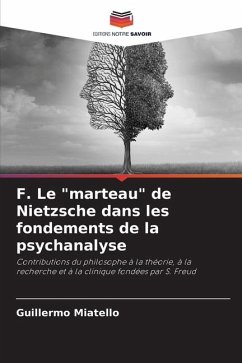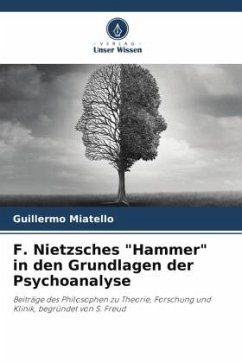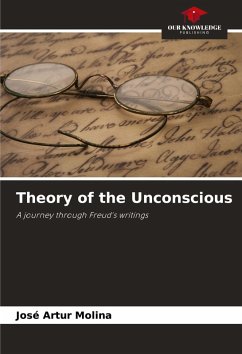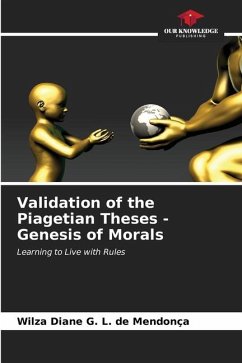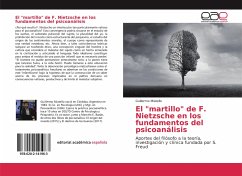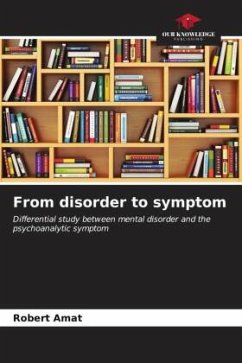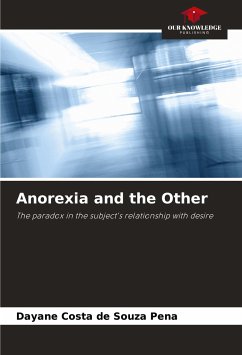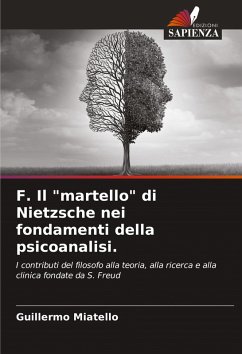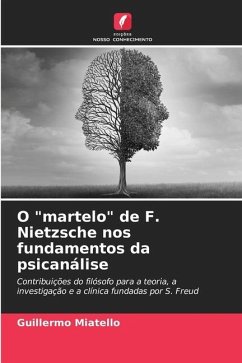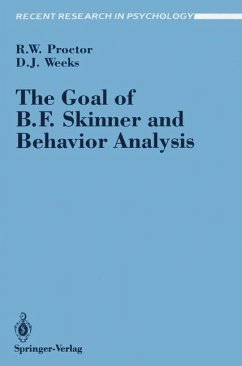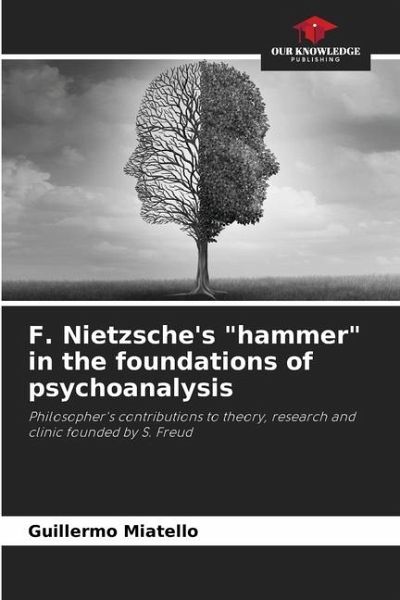
F. Nietzsche's "hammer" in the foundations of psychoanalysis
Philosopher's contributions to theory, research and clinic founded by S. Freud
Versandkostenfrei!
Versandfertig in 6-10 Tagen
36,99 €
inkl. MwSt.

PAYBACK Punkte
18 °P sammeln!
Why is F. Nietzsche such a particularly valuable interlocutor for psychoanalysis? This convergence could be located in the study of dreams, the drive substratum of the subject, the plurality of the ego, the prohibition of incest as structuring the psyche, the study of the origin of moral sentiments, the body as representative of a new truth, etc. However, underlying these theoretical coincidences is an ethical background, a singular conception of man and culture that considers the subject's malaise as a fact rooted in civilisation and articulated in language. For both of them, all idealism con...
Why is F. Nietzsche such a particularly valuable interlocutor for psychoanalysis? This convergence could be located in the study of dreams, the drive substratum of the subject, the plurality of the ego, the prohibition of incest as structuring the psyche, the study of the origin of moral sentiments, the body as representative of a new truth, etc. However, underlying these theoretical coincidences is an ethical background, a singular conception of man and culture that considers the subject's malaise as a fact rooted in civilisation and articulated in language. For both of them, all idealism constitutes the residue of an infantile position that must be lost. "Man cannot remain entirely a child; in the end he has to throw himself out into hostile life. This can be called education for reality"; both Nietzsche's psychological observation and Freudian psychoanalytic treatment enter into the conditions of this "infantilism" under the assumption that the construction of knowledge about the processes involved in pathos would lead to valuable, productive and limiting consequences for subjective discomfort.



